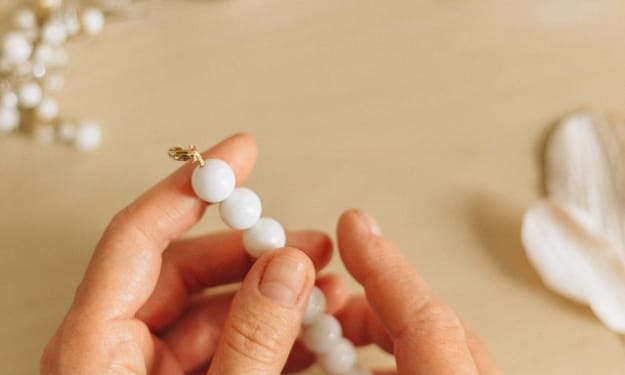How To Get All The Sleep Your Need
...And Improve Its Quality All Year Round

Sleep is an essential element within human beings lives that helps them to maintain good health and overall well-being; regardless of their gender, weight and lifestyle.
Unfortunately, external factors like temperature and seasonal changes can disrupt our sleep patterns and our overall sleep quality by aggravating our sinuses, throats, increasing our snoring and other sleep issues like sleep apnoea
CLICK TO FIND OUT THE EASY, FAST WAY TO BOOST YOUR SLEEP, MIND AND ENERGY NATURALLY
If you’ve noticed this within your sleep patterns and want to improve things, try implementing these tips, so you can enjoy more restful nights and wake up feeling refreshed and rejuvenated, ready to be productive, creative and abundant.
Create Sleep-Friendly Environment
The first step in improving your sleep is creating a sleep-friendly environment. Regardless of the temperature or season, be aware of the following factors:
a) Temperature regulation: Use fans, air conditioning, or heating systems to maintain a comfortable temperature in your bedroom. Experiment with your bed linen and what you wear to bed like pjs or boxer shorts, such as breathable fabrics or temperature-regulating sheets to find what works best for you.
b) Air conditioning systems can cause issues for the more sensitive among you. If you have sinus issues you can combat the dryness caused by air conditioning by using a humidifier in your bedroom. A humidifier adds moisture to the air, preventing your sinuses from becoming overly dry and congested.
Creating a mobile humidifier for use in hotel rooms can be a practical solution to add moisture to the air and improve your comfort during your stay. Here's a simple DIY method to create a portable humidifier:
Materials you will need:
Portable fan
Water bottle with a cap
Small sponge or cotton balls
Rubber band or adhesive tape
Scissors
Water
Start by cutting a small hole in the cap of the water bottle. Ensure that the hole is just large enough to insert the nozzle of the fan.
Fill the water bottle with water, leaving some space at the top.
Take the sponge or cotton balls and soak them in water. Squeeze out any excess water, so they are damp but not dripping.
Place the damp sponge or cotton balls inside the water bottle, making sure they are not blocking the hole in the cap.
Attach the cap with the sponge/cotton balls to the water bottle tightly.
Position the fan in front of the water bottle, with the nozzle inserted through the hole in the cap. Secure it in place using a rubber band or adhesive tape, ensuring a snug fit.
Turn on the fan and let it blow air through the damp sponge or cotton balls. As the air passes through, it will pick up moisture and humidify the surrounding environment.
Note: It's important to regularly monitor the humidity levels and refill the water bottle as needed. Be cautious with water leakage, especially if the humidifier is placed on delicate surfaces.
Remember, this DIY mobile humidifier is a temporary solution and might not provide the same level of efficiency as commercial humidifiers. However, it can help add a bit of moisture to the air in a hotel room, making it more comfortable during your stay.
Please note that it's always a good idea to check the hotel's policies regarding the use of personal appliances before using any DIY device in your room.
c) Darkness: Invest in blackout curtains or blinds to block out external light sources, especially during the brighter months. Alternatively, consider using an eye mask to create a darker sleeping environment.
d) Noise reduction: Use earplugs, white noise machines, or soothing sounds like nature recordings to mask disruptive noises that might affect your sleep.
Stick To A Consistent Sleep Schedule
Establishing a regular sleep schedule helps regulate your body's internal clock and improves sleep quality. Aim for consistent bedtimes and wake-up times, even on weekends. This is especially important when you are a shift worker, so your body gets the rest it needs. Sticking to a routine helps your body anticipate and prepare for sleep, making it easier to fall asleep and wake up refreshed.
Wind Down and Relax Before Bedtime
Create a calming pre-sleep routine to signal your body that it's time to unwind. Switch off your laptop, leave binge-watching your favourite tv series, and instead, opt for activities like reading a book, practicing relaxation techniques like meditating, or relaxing in a bath.
Cosy Up Your Sleep Environment
Make your bedroom a cosy, sleep haven by making it super comfy and relaxed. :
a) Comfortable mattress and pillows: Choose a mattress and pillows that provide adequate support and comfort for your body. This can vary depending on your personal preferences and any specific physical conditions you may have.
b) Declutter your bedroom: Keep your sleeping area free of clutter and distractions. A clean and organized space promotes a sense of calm and tranquility.
c) Sleep-friendly lighting: Use soft, warm lighting in the evening to promote relaxation. Consider using dimmer switches or bedside lamps with warm-colored bulbs to create a cozy atmosphere.
Watch Your Diet And Stay Hydrated
What you eat can really impact your sleep quality:
a) Cut back on your caffeine and alcohol: Avoid consuming caffeine close to bedtime, as it can interfere with falling asleep. Similarly, while alcohol may make you feel drowsy initially, it can disrupt your sleep later in the night.
b) Balanced meals: If you love spicy, greasy food, avoid eating them close to your bedtime, as they can cause you discomfort and need time to digest fully within your body. If you switch to lighter, well-balanced meals you will be able to digest your food better.
c) Stay hydrated: We all know that we should drink at least 1 litre of water per day, but most of us, just don’t. Ensure you drink enough water, but have less closer to disruptive nighttime bathroom visits.
Exercise Regularly
Regular physical activity can contribute to better sleep, regardless of the temperature or season. Engage in exercise earlier in the day, as it promotes the release of endorphins and helps regulate your energy levels. However, avoid vigorous exercise, before you go to bed, as you want your body to slow down, not to stay awake.
We hope these tips are helpful to you and your sleep journey.
-----------------------------------------------------------------------------------
Dear Reader, please note that this blog post contains affiliate links. By clicking on these links and making a purchase, I may earn a small commission at no additional cost to you. These commissions help support the maintenance and growth of this blog, allowing me to continue providing valuable content. Thank you for your support!
Lara xoxo
--------------------------------------------------------------------------------------
About the Creator
Lara Livingstone
Time waits for no one and no one understands that better than me, as a digital creator and blogger. If you want to maximize your time, & keep up to date with all the latest travel/life news - check out my articles, products, and reviews






Comments
There are no comments for this story
Be the first to respond and start the conversation.